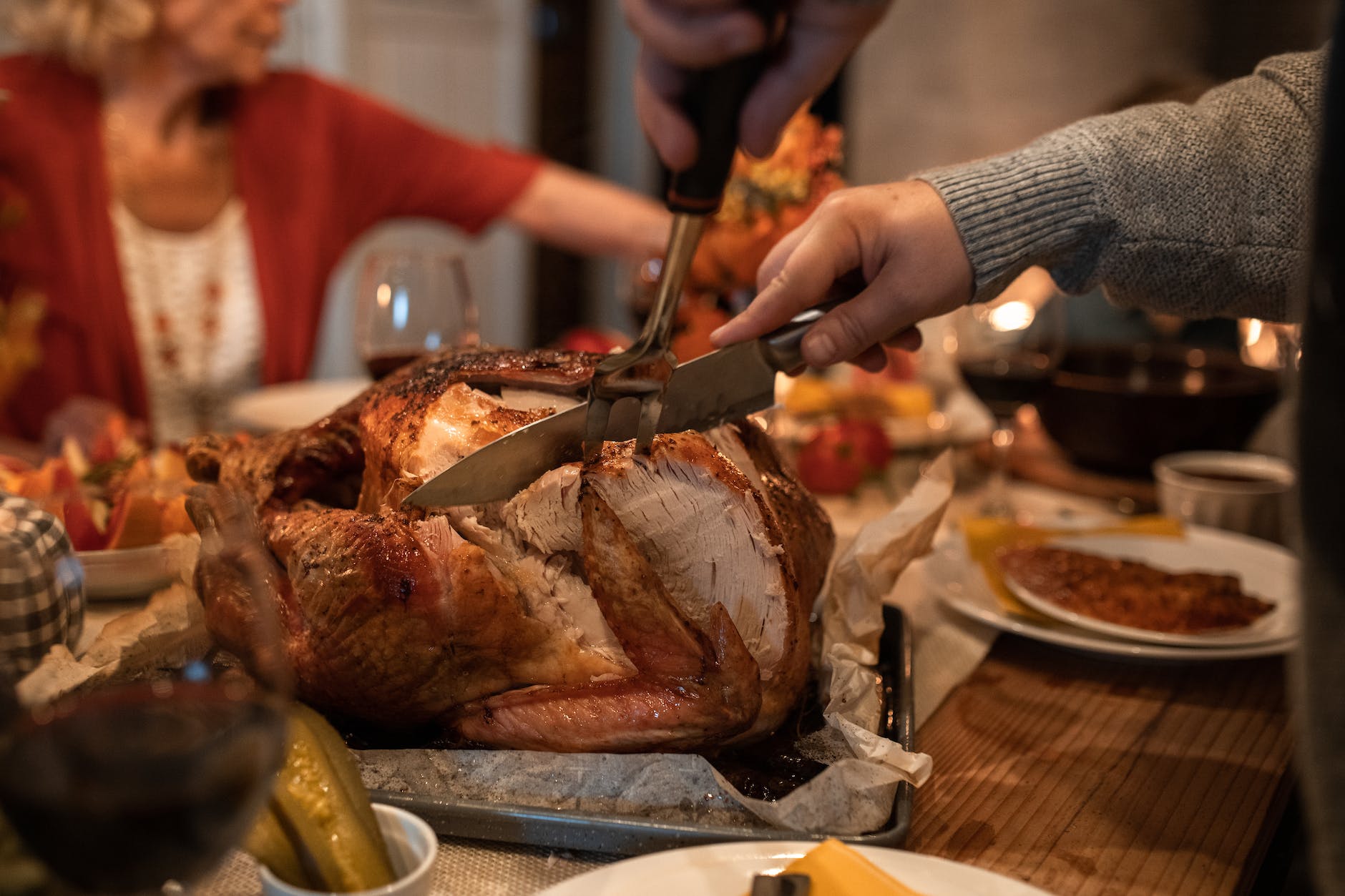Guest Post by Jared McNaab
As an American, I have always thought that Thanksgiving is our nation’s great holiday. It also seemed especially appropriate to me that Thanksgiving falls close to the beginning of Advent and the beginning of the Church calendar year.
Indeed, the Church’s calendar is a gift to her people to help them remember, celebrate, and participate in God’s acts in history. We begin the church year with Advent by pointing ourselves to our future, reminding ourselves that Christ is coming again, and that this life is a life of longing for that future. We then get out the packages, boxes, and bags to celebrate the Word made flesh, who dwelt among us. We rejoice in the Light of Christ going to the Gentile nations in Epiphany. We remember the life of Christ and particularly his suffering in Lent. We break open the champagne to celebrate the victory of life over death. The party continues with the Ascension of Christ and the sending of the Spirit on Pentecost.
The church calendar is a way for us to mark God’s redemptive acts in the world. But undergirding the feasts and festivities of the church calendar, and underneath God’s redemptive acts in the world, is one major presupposition: all of Creation is, as God pronounced on the 6th day, “Very good.”
It is the goodness of God’s creation that thrusts forward God’s redemptive acts. Jesus’ incarnation, life, death, resurrection, ascension, sending the Spirit and his coming again all occur because God is determined not to throw this world into the wastebasket when it fell due to sin. But God acted because he decided that his creation was worth redeeming. For God, creation was worth fixing, worth redeeming, and worth glorifying and perfecting.
It is this goodness of all creation that lies at the very heart of every feast and all festivity. Our recognition and profession of the goodness of creation is what gives us the ability to participate wholly in festivity and feasting. Particularly the feasts of the Church year.
It was, perhaps ironically, Friedrich Nietzsche, who perceived this truth. He pointed out that it is not hard to put together and throw a feast. But rather the trick is “to find people who can enjoy it.” A feast can only be properly enjoyed by people who are capable of true joy. But we substitute entertainment for joy, and would much prefer the former. We live in a culture that has fed on the lie that creation is impersonal and meaningless, and so we find ourselves starved of joy.
And so to become capable of celebrating the feasts of the Christian year, to even become capable of finding joy in the redemptive acts of Jesus Christ, we must reaffirm with joy the goodness of creation. The philosopher Joseph Peiper has argued that underlying all particular festive joy (think of the joy of that is particular to Christmas or Easter Day), there must be an affirmation of the world as a whole, and life itself as being very good. To refuse to assent to the goodness of reality is to be “incapacitated for either joy or festivity.”
And so we return to Thanksgiving. This is a day in which we give ourselves to affirm that all of creation is a good gift from the good Creator; a day to point out that God is owed our thanks and praise every day for his creation and providence. Thanks is shown to the Creator especially through the sharing and enjoying his gifts. And so we give ourselves to celebrate with the wine which gladdens the heart of man, and bread which strengthens the heart of man (Psalm 104:15). It is a day to satisfy our souls with fat and rich foods, and to praise God with joyful lips (Psalm 63:5).
It is this affirmation of the goodness of creation that allows us to affirm the goodness of Redemption. It is a life of Thanksgiving that allows us to enter into the feast and festivity of the Church year.
“Where love rejoices, there is festivity.” – St. Chrysostom
Jared is a pastor at Christ Church of Morgantown (CREC), in Morgantown WV, and is proud to be an adopted Mountaineer. He trained for ministry at All Saints Church in Lancaster PA, while attending Westminster Theological Seminary in Philadelphia. He is married to Kendra and is the Father of three boys.















